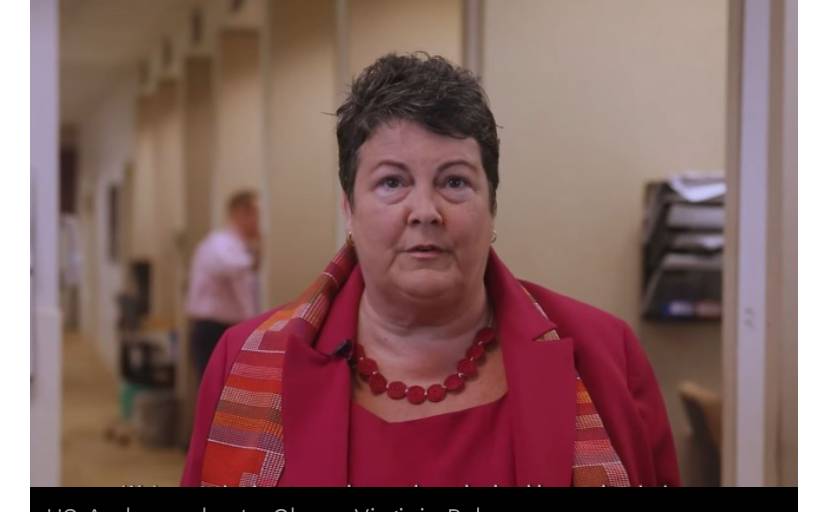US Ambassador to Ghana Reaffirms Strong Ties Despite Tariffs Imposed by President Trump
Virginia Palmer, the United States Ambassador to Ghana, has reiterated that Ghana remains an important and valued partner for the U.S. despite recent changes in the international trade landscape, including the U.S. government’s imposition of new tariffs. In a statement made during her first public address after the political transition in the United States, Palmer made it clear that the long-standing relationship between the two countries will not be impacted by recent shifts in U.S. trade policy.
Her remarks come in response to U.S. President Donald Trump’s executive orders, which authorize significant tariffs on several nations, including Ghana. Under the new measures, Ghana has been subjected to a 10% levy on exports to the U.S., raising concerns about the potential strain this could place on the trade relations between the two nations. The tariff, set to take effect on April 5, 2025, is part of a broader strategy aimed at addressing the U.S.’s trade imbalance with several countries. This move has sparked widespread debate and concern over its long-term impact on global trade and on nations like Ghana, whose exports to the U.S. could face increased costs.
Despite these challenges, Ambassador Palmer was quick to reassure that Ghana’s importance to the U.S. has not diminished. “No matter what changes occur in language, policy, or emphasis, Ghana remains a critical partner for the United States,†she emphasized during her briefing. She further stated that the U.S. is committed to supporting Ghana’s economic recovery and growth through both bilateral efforts and multilateral institutions like the World Bank and the International Monetary Fund (IMF).
The ambassador highlighted that the trade relations between the two countries have been well-established and continue to thrive despite the imposition of tariffs. Bilateral trade between the U.S. and Ghana currently stands at approximately $3 billion, and this enduring connection is built on a foundation of shared history, culture, and cooperation. Palmer mentioned that the U.S. government, alongside American business interests, remains firmly behind Ghana’s growth, and in that vein, a significant trade mission is being planned to further enhance investment and business relations between the two nations.
While the exact details of the trade mission are yet to be disclosed, Palmer hinted at its potential to bring new opportunities for cooperation in areas such as commerce, agriculture, and infrastructure. The ambassador’s optimism about future U.S.-Ghana relations was evident as she reassured the public that the enduring partnership will continue to be a cornerstone of U.S. foreign policy in Africa.
Palmer also addressed concerns regarding the broader impact of President Trump’s tariff measures, which are being enforced under the International Emergency Economic Powers Act of 1977. According to the U.S. president, countries with the largest trade imbalances with the U.S. will face these tariffs, which will be adjusted individually based on the trade practices of each country. Trump’s directive states that these tariffs would be half of what these countries had previously charged the U.S. for exports.
The levy has raised concerns not just in Ghana but also across other countries facing similar tariffs. Many fear that these tariffs could hinder the growth of trade relations and create economic hardships, particularly for developing nations that rely heavily on exports to the U.S. market. Despite this, Ambassador Palmer’s comments suggest that the U.S. remains dedicated to strengthening its ties with Ghana and supporting its economic recovery, regardless of the political and trade shifts occurring globally.
Palmer concluded by emphasizing that the U.S.-Ghana relationship remains strong and will continue to flourish. The anticipated trade mission is seen as a clear sign of the U.S. government’s ongoing commitment to Ghana’s development, with both countries hopeful for a mutually beneficial future.




No comments yet
Be the first to share your thoughts!